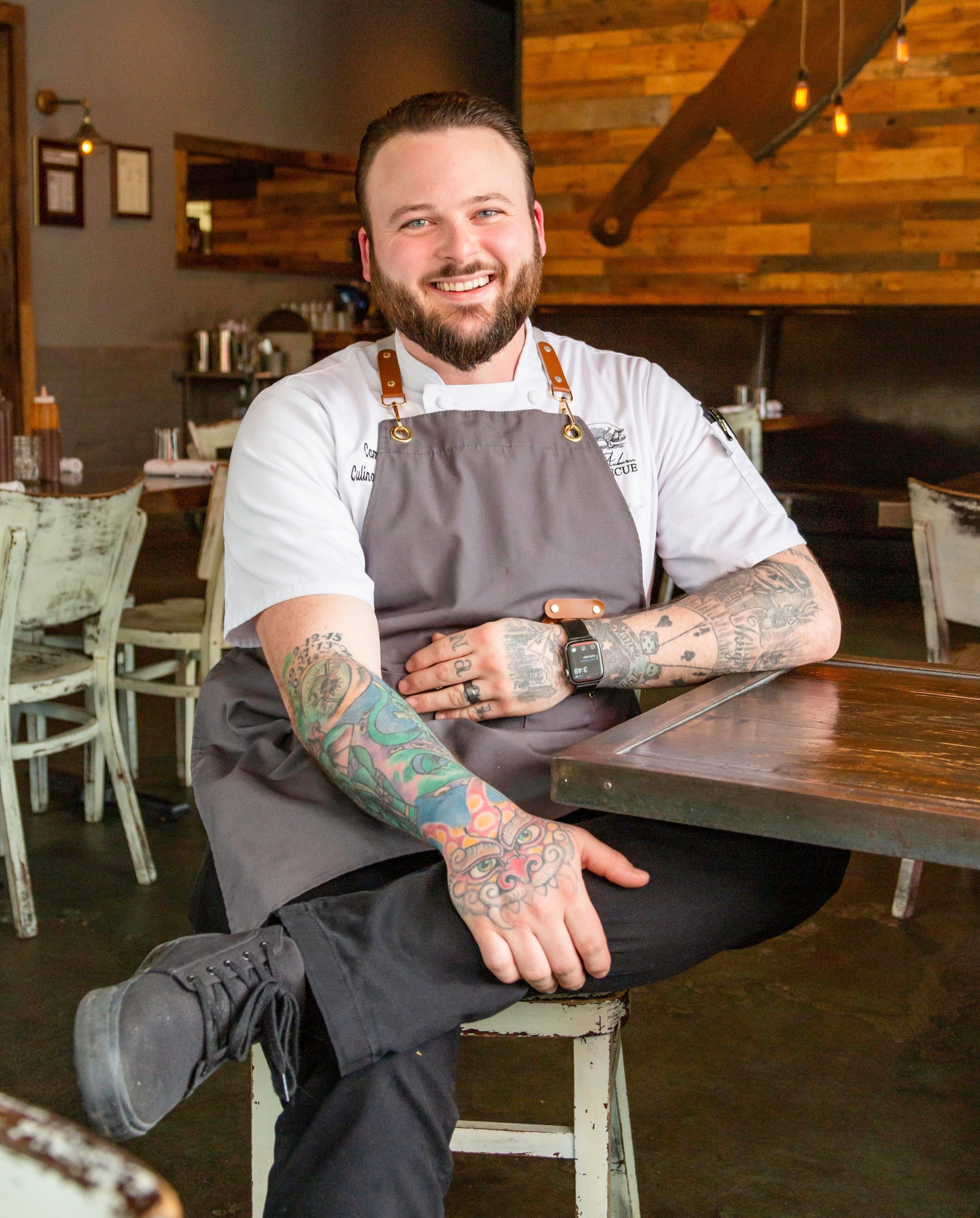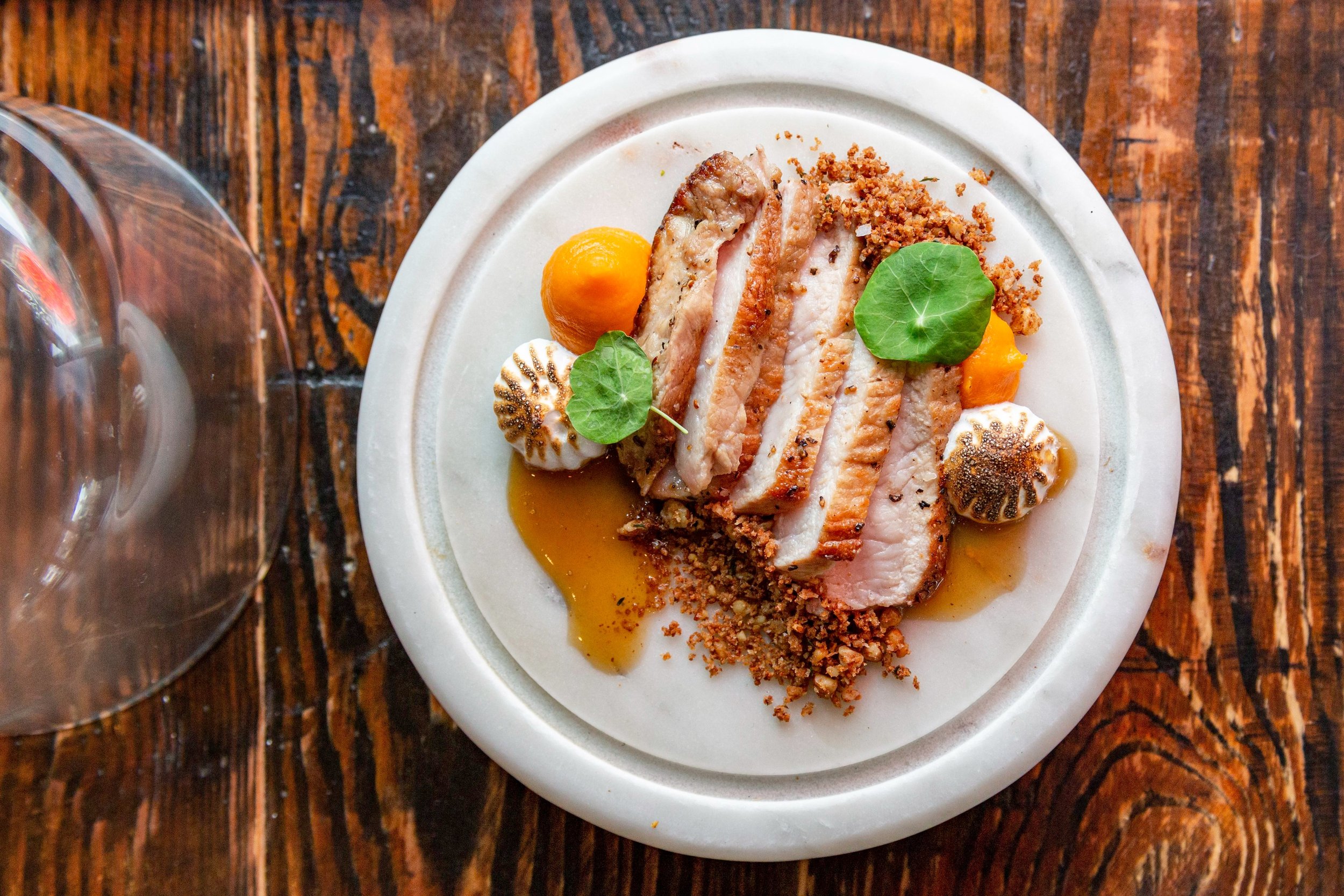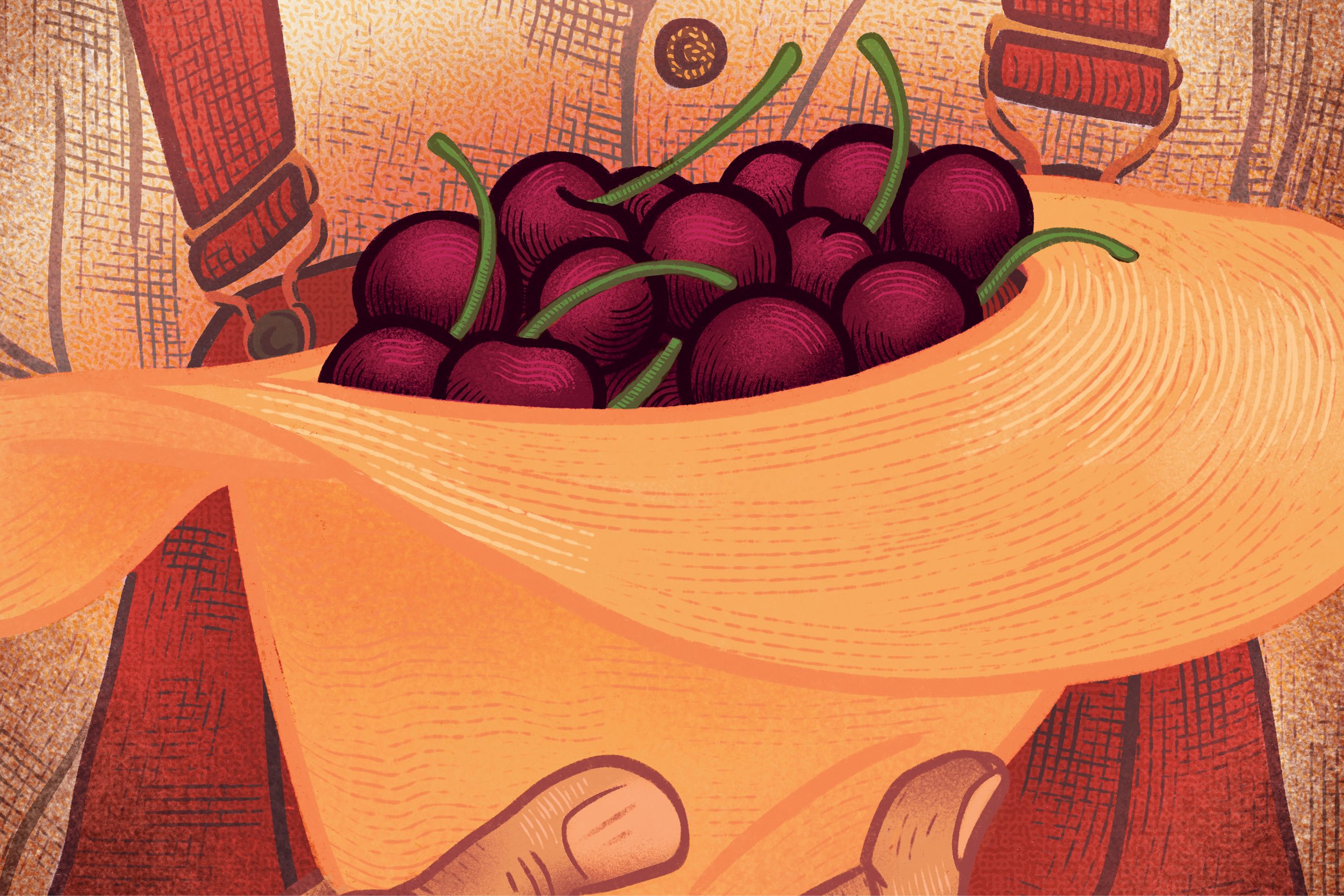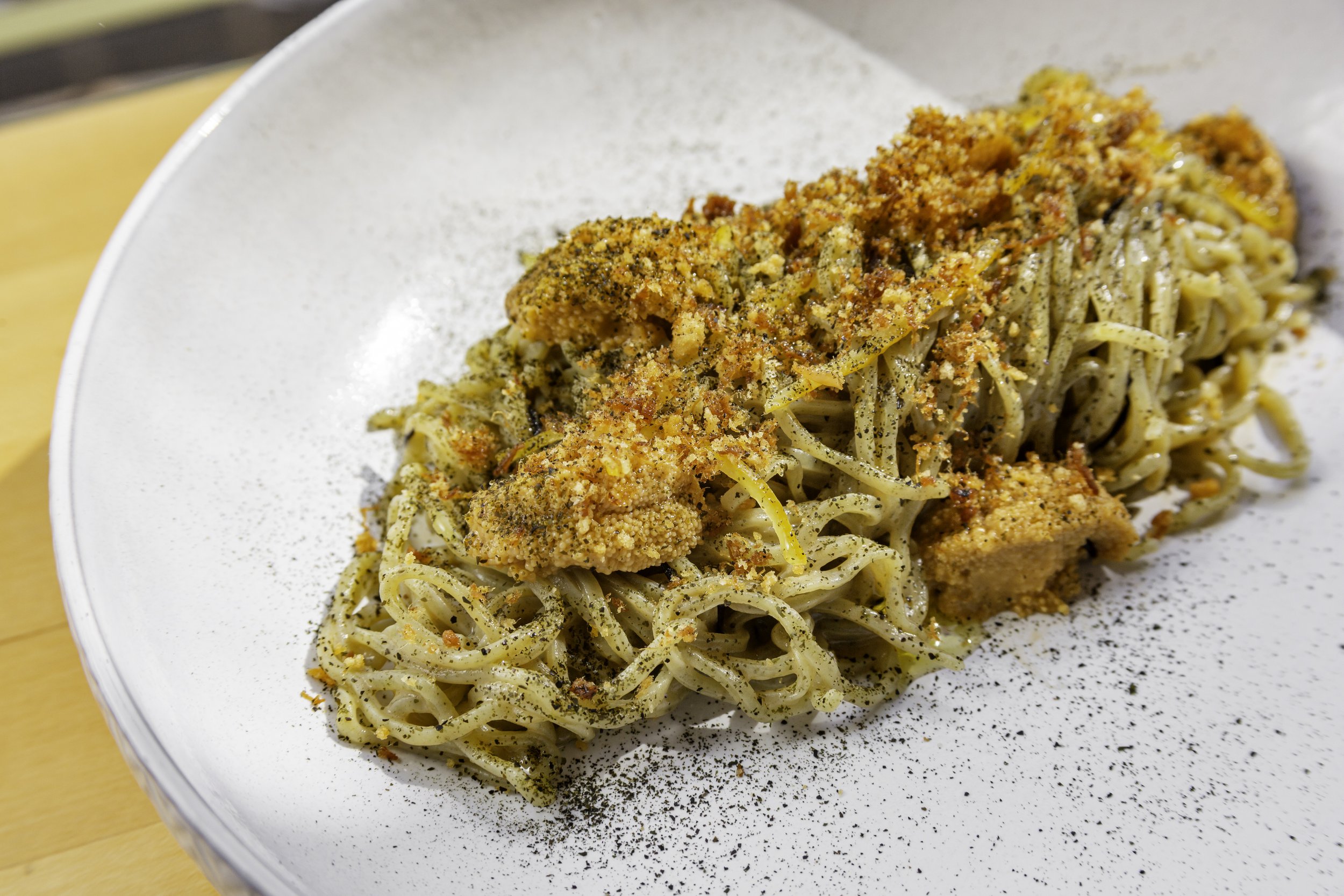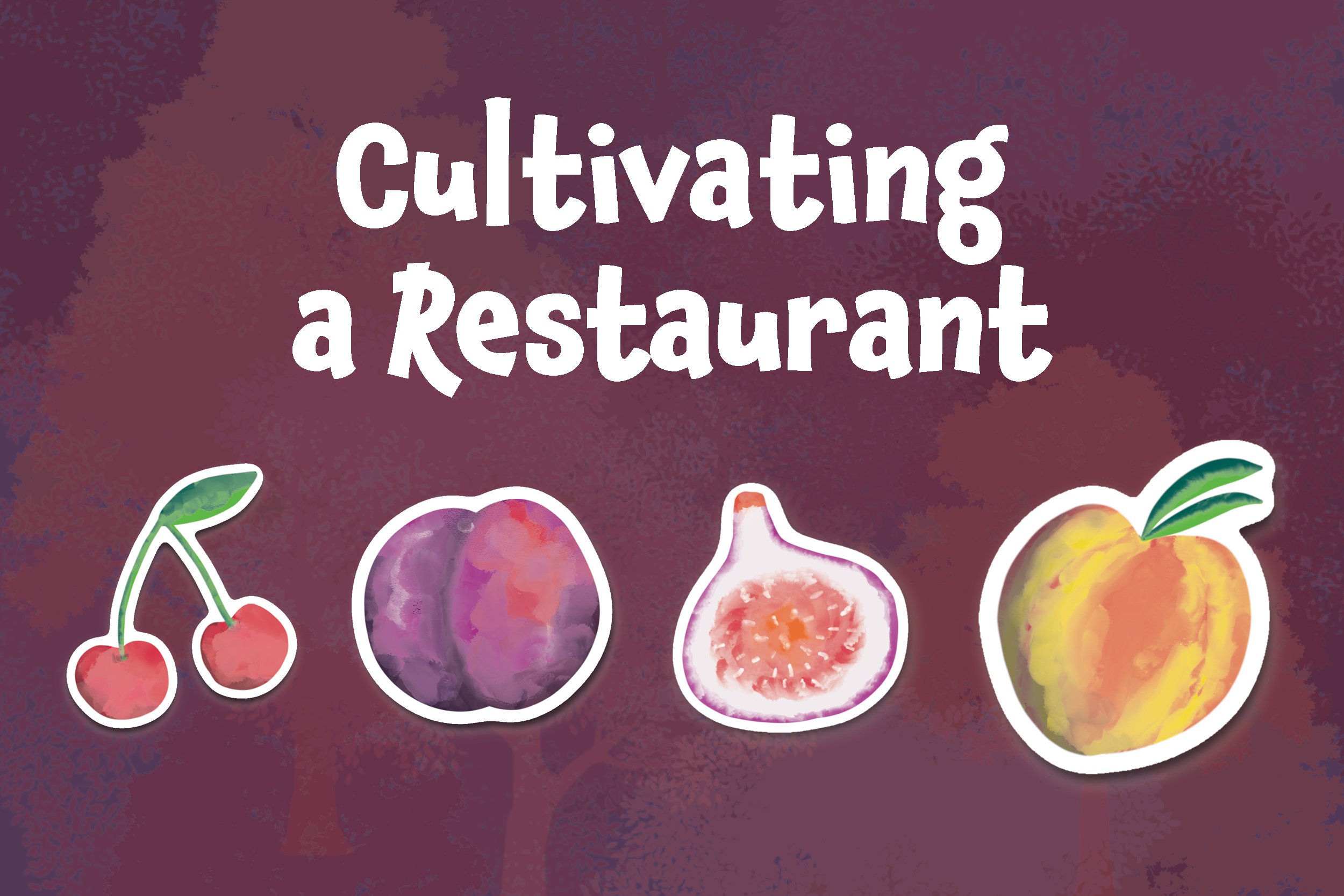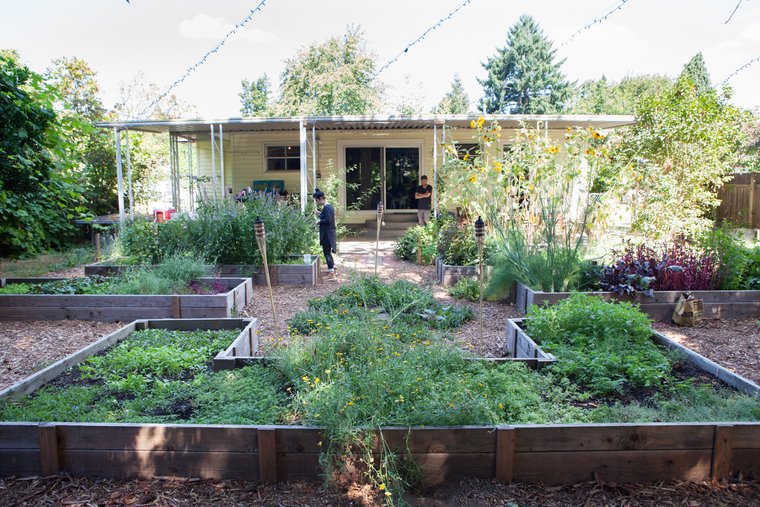Hog on the Hill
At Sweet Auburn BBQ, Cam Floyd wears many hats—chef, farmer, and agricultural advocate on Capitol Hill.
Illustration: Bashel Lubarsky
Chef Cam Floyd of Hsu Hospitality
There’s a growing movement amongst chefs across the country to be more in touch with the food they serve. This isn’t new—‘farm-to-table’ is still alive and kicking, and showing no signs of slowing down. But there are layers to it: there are chefs who are committed to local produce, there are chefs who focus on relationships with local farmers, and there are chefs who are farmers themselves, bridging the gap between field and kitchen. And then, there’s Cam Floyd, the culinary director and partner at Atlanta’s Hsu Hospitality.
Floyd has many roles: he manages the kitchens across the group, including Sweet Auburn BBQ, he’s the Chairman for the Young Farmers and Ranchers Committee at the Douglas County Farm Bureau, and is on the board of Georgia’s Farm Bureau. Oh, and he's also the founder and co-operator of West Georgia’s largest farmers market, MAES Farmer’s Market.
In 2020, Floyd tapped into his love for agriculture while raising chickens with Ray Baker, a former general manager for Rocket Farm Restaurants who now runs Bedgood Heritage Farm in Cleveland, Georgia. “I wanted to help him with his dream of starting a farm,” says Floyd. “We built some chicken coops and put up some infrastructure. Then, once the chickens were going, we asked ourselves, ‘What else should we raise?’” At Sweet Auburn, Floyd’s biggest focus is high-quality, well-raised pork, so they decided on Gloucestershire Old Spot piglets, an old world breed with excellent marbling. They began raising them on a Spanish Iberico program, pasturing under oak trees, and finishing them on pecans and acorns. And although Floyd can’t sustain all of Sweet Auburn's pork needs on these pigs, he serves them upon availability, and uses them to teach hog butchery classes to his staff and the public.
The deeper he got into the world of small farms, the more Floyd recognized that farming is intertwined with politics. “Once you get into that world, you accept that you’re getting into some form of politics. For me, I like to help provide a voice for the farmers,” he says. What started as working with advocacy groups has turned into trips to both the Georgia Capitol and to Washington, D.C. to rub elbows with lawmakers and represent his district’s small farmers. “Laws, restrictions, licenses, fines, and feed, that’s all political. Things like lumber and feed prices, those matter to a small-scale farmer,” says Floyd. In February 2022, Floyd fought for the passing of Georgia’s Freedom to Farm Act. “It states that in Georgia, as long as you’re following proper guidelines and ordinances, your neighbor can’t call you a nuisance,” he says. “Rooster crows, smells, things like that, those things can’t be considered a nuisance anymore.” For Floyd, anything that lightens the load on farmers and makes their lives easier in such a challenging profession is a win.
Seared Copa, Smoked Pecan Picatta, Brown Butter Sweet Potatoes, Toasted Meringue
BBQ Platter: (1) Baby Back Ribs; (2) Smoked Brisket; (3) Wu Tang Wings; (4) Pulled Pork; (5) Thai Chile Brussels Sprouts; (6) Three-Cheese Mac and Cheese; (7) Nam Jim Jaew; (8) Chile Crisp
But, at the end of the day, if farmers can’t sell their product, no amount of advocacy will recoup their losses. While the farm-to-table movement started with chefs figuring out a menu based on what came in from the farm that day, or that week, there is a serious flaw with the practice. If chefs don’t want what a farmer has grown, then that farmer walks home with dead product. “I find farmers and send them an order guide,” says Floyd. “Back in the day, farmers used to come to the back door of a kitchen, but that doesn’t really happen anymore. Now, I’ll say ‘Hey, I know it’s December, but come January or February, would you grow this amount of this?’ We can be boots on the ground with them; that’s the biggest impact I can make. Asking ‘How can I support you,’ rather than ‘What do you have to sell?’”
Floyd brings together both of his communities in what he calls “Harvest Days.” He takes his Young Farmers and Ranchers community and his front and back of house teams to a farm—the first outing was at Bedgood Heritage Farm. The restaurant staff worked with the farmers and played with the rabbits for about two hours, “and then we taught them how to process and slaughter that rabbit,” says Floyd. “It’s nuts for some people, but the concept for these Harvest Days is to teach our chefs and staff what farmers go through, the emotional trauma of processing an animal.” But it’s not just teaching animal processing that Floyd wants to achieve. For him, it’s about building a relationship between farmer and chef, and bridging those two worlds. It’s about supporting the farmers and having his chefs cook a meal at the end of the day to enjoy with farmers around a bonfire. “It gives our chefs connections for when they run their own restaurants. They know our farmers, they’ve had experiences at their farms. If we can build this empire of chefs who have those connections, it gives the farmer some sort of security and stability as well. They know that they can look out at their field, or their hogs, and see dollars, not just a freezer full of product.”


